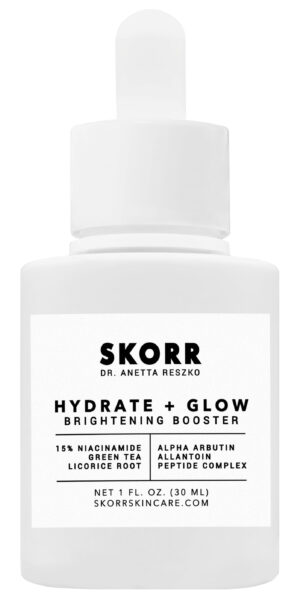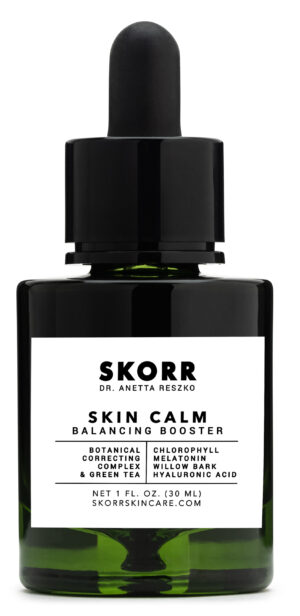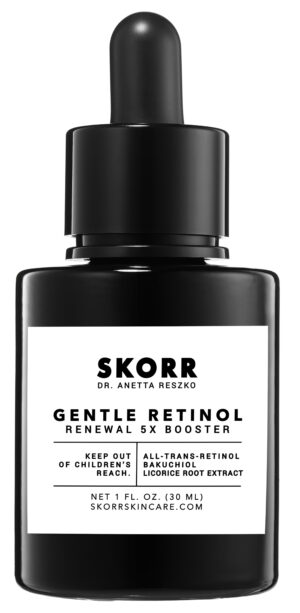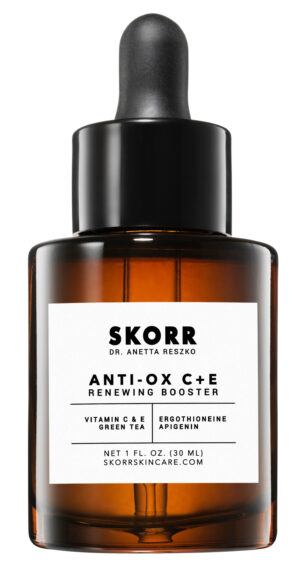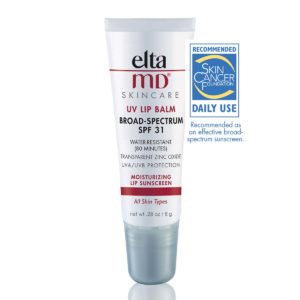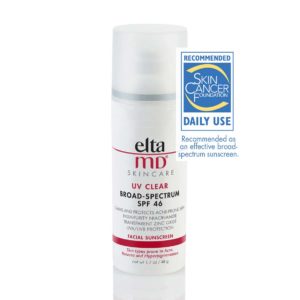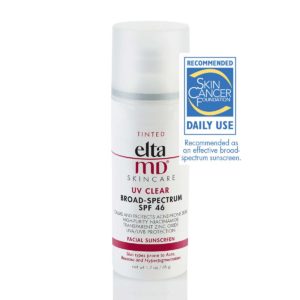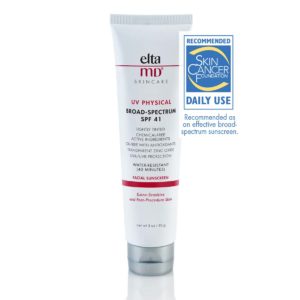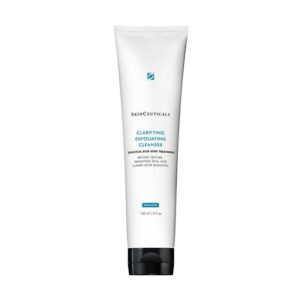
WHAT'S YOUR SKIN TYPE?
Whether you have combination, oily, dry or sensitive skin, it is important to understand your specific skin type in order to properly treat acne.
Combination skin is the most common skin type. Some areas, such as the forehead, nose and chin (the T-zone), may be very oily. The areas along the hairline, cheeks and jaw line may be very dry. Overall, the extent of the oiliness/dryness is hereditary and is regulated by hormones.
Dry skin is characterized by flaky, tight, rough skin with dry patches. The surface of the skin contains a 10 to 30% water content and it is important to maintain a balanced level of hydration. There are many factors which contribute to dry skin. Sun damage, environmental stressors, climate and hereditary factors may all be factors contributing to dry skin.
Even with dry skin, acne may persist. Be extra gentle with dry skin. Avoid harsh and drying cleansers, use lukewarm water to wash and use only non-comedogenic moisturizer to help relieve dry skin.
Oily skin is characterized by excess shine on your complexion and enlarged pores even with blackheads and whiteheads. Oily skin is hereditary however it is the most common during the teenage years when hormones and oil production surge. Besides your genes, the following also contribute to oily skin: Stress Humidity Hot climate Certain medicines (birth control) Over exfoliation Over cleansing It is very important to be gentle on your skin. If you wash with a harsh cleanser more than two or three times a day and use exfoliating toners and astringents more harm than good may be done to your skin, in the long term, with the use of harsh ingredients. Over exfoliation and cleansing causes the pores to ramp up oil production to compensate for the dried out skin. Many different skincare and beauty products are marketed toward people with oily skin. It is important to choose the correct skincare routine targeted for oily skin. Use oil-absorbing products and oil blotting sheets to achieve balanced skin. In addition, primers, toners and masks are also available to help alleviate overly oily skin
Stress
Humidity
Hot climate
Certain medicines (birth control)
Over exfoliation
Over cleansing
It is very important to be gentle on your skin. If you wash with a harsh cleanser more than two or three times a day and use exfoliating toners and astringents more harm than good may be done to your skin, in the long term, with the use of harsh ingredients. Over exfoliation and cleansing causes the pores to ramp up oil production to compensate for the dried out skin.
Many different skincare and beauty products are marketed toward people with oily skin. It is important to choose the correct skincare routine targeted for oily skin. Use oil-absorbing products and oil blotting sheets to achieve balanced skin. In addition, primers, toners and masks are also available to help alleviate overly oily skin
Sensitive skin is often characterized by redness, itching, tingling, stinging, or burning, most often after applying products.
There are two causes of sensitive skin, the environment and genetics. Using too many products on a daily basis, or overusing them more than their directions indicate, can damage your moisture barrier, leading to irritation. People with conditions like eczema and rosacea are genetically predisposed to sensitive skin.
